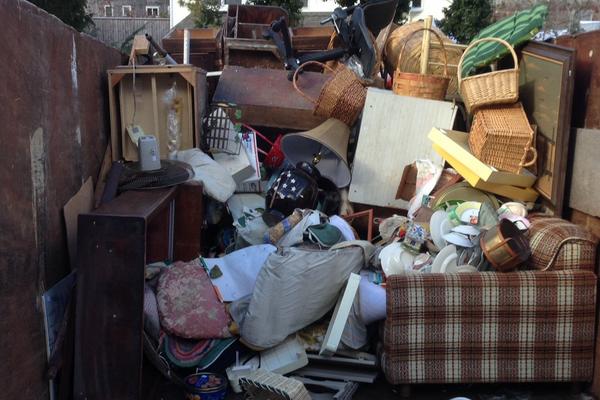In this article about clean-sweeping your home we will give you some insights & tips to let go of and then rid your environment of everyday junk.
In most cases hoarding is often a reflection of anxiety, and can be raised to the nth degree of compulsion & obsession pathologically overcapitalizing on the virtue of saving.
Obsessed hoarders may have extreme habits, but we all know someone who holds onto items of little to no further use. We all do it to some degree. You never know when you’ll need that old ping pong table, or that dirty old couch, or that stomach cruncher exercise thing; although you know you really never seriously used it before and you most probably never will. It seems we have a heavy box of old magazines? There just might be an article that you’ll want to read when we have nothing else to focus on. In reality though – not.
Have you ever paid a visit to a relative, but found it hard to get through the front door? Basements are even a better example. If we go through our own family trees, we know someone who even hold onto old newspaper clippings, bottle caps, broken electronic equipment, junk mail and just about any other non-perishable items. It all winds up in stacks throughout the house.
There have been tv shows such as “Junk Raiders” , “How Clean Is Your House?” and “Clean Sweep” reveal exactly what’s inside common closets: lots & lots of junk. Canada has become a nation of hoarders.
Legitimate reasons to hoard are derived from the need to store supplies in case of hard times or emergency – such as storable food. But why do some people hoard perfectly useless objects like bottle caps? Compulsive drive is a basic pattern originates in the limbic and subcortical regions and also the prefrontal cortex, a brain region involved in decision making information processing and behavioral patterns – that do the processing of what things are worth hoarding. In a small percent of cases; hoarding is also be the symptom of brain damage to the prefrontal cortex; such as a stroke,
- So, after we or our spouses/children not the problem to us – how can we clean up the buildup mess and then live reasonably without living in a warehouse? The following are a half-dozen tips to keep your home, office (and mind) cleaner View Postand better organized:
- Commit to sharing the wealth: Planning on donating your things in an appropriate manner contributes to society. The altruism of it will make you feel good.
- Write a priority list: Jot down what you plan to definitely keep, and other items that should be donated or tossed. Later it is important to stick to the list despite sentimentality.
- The “I’ll fix it someday” trap: If the toaster-oven or a big old tv is broken and can’t be easily repaired – then ask yourself why is it still in your possession? Let’s quote Disney’s Frozen movie here: “Let it go, let it go…:
- Similarly, – the “I’ll use it someday” rationalization: This will help you avoid buying buy more than you need now. Realize you might not even use it – your taste, and perceived needs may change.
- The “in-out” rule. The rule is simple: what comes in must go out. If you buy a new replacement item: make sure you throw out, sell or donate one the item that was replaced.
- Letting go of nostalgia. You open a drawn jammed full of stuff and find and old sweater when you dated your first boyfriend 20 years ago – will you ever really wear it again? Better – .it’s time to give it a final wash and give it away. For any item, seriously ask yourself whether you use the thing in question. Has it been sitting idle for years? You could self-impose a two-year rule. If your haven’t touched a stored item (not included dusting) in two years – then out it goes. Maybe even put a date on it by the use of a pen and piece of masking tape.
- Uncover the real problem so the cycle does not repeat: Perhaps you buy stuff and then hoard it to relieve the anxiety of having actually spent money? Best not to hide your real internal issues either. If you have a persistent spending or hoarding problem, there are professionals sort things out in your mind.
- Now get highly organized. You have been searching for that important bank document for 3 days, – but where did it go? After organizing your space with filing cabinets and shelves, you’ll wind up wasting less time looking for important articles periodically.
Happy unhoarding!














